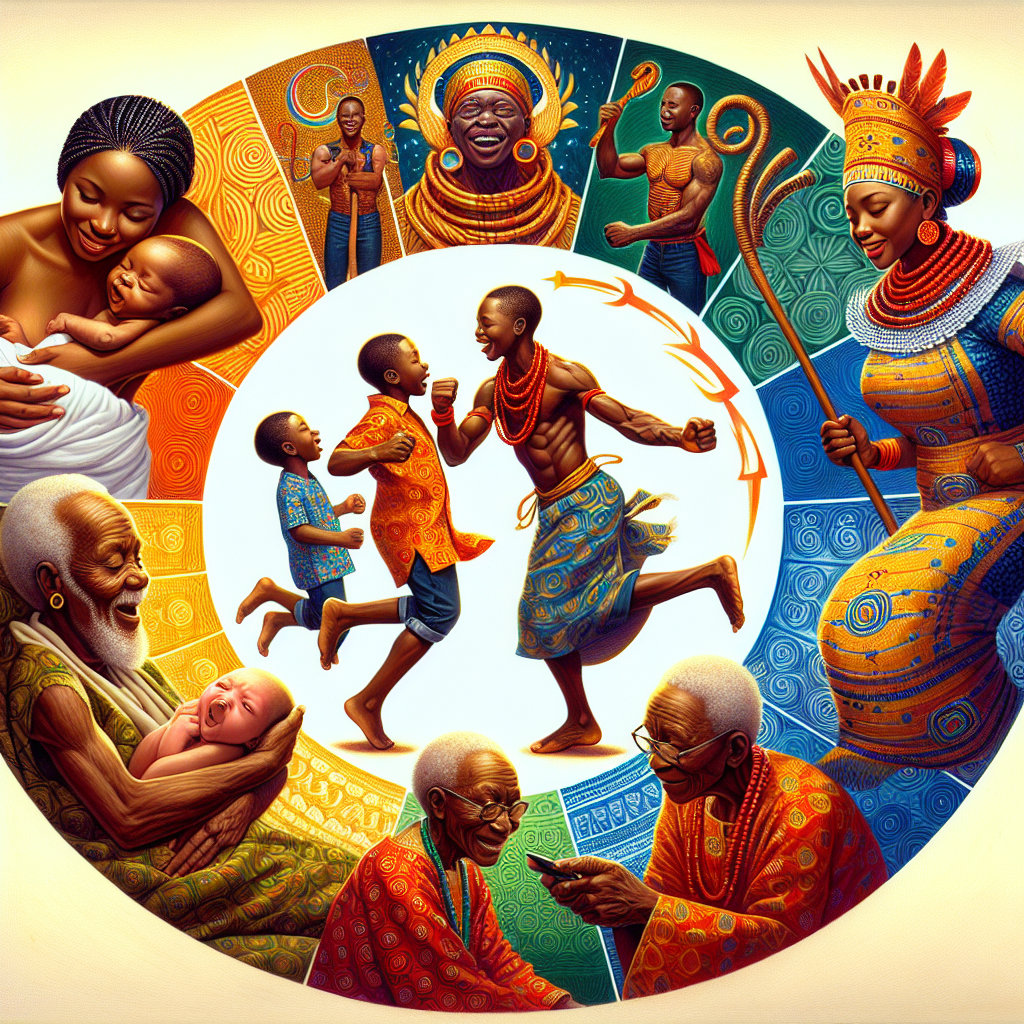The Yoruba people of Nigeria have a rich and vibrant culture that is deeply infused with tradition and spirituality. Central to their cultural beliefs are the various life cycle rituals that mark important milestones in an individual’s journey from birth to death.
From birth to death, Yoruba life cycle rituals play a crucial role in reinforcing social ties, transmitting cultural values, and ensuring the well-being of the community as a whole. These rituals are deeply rooted in the Yoruba religion, which believes in the existence of a pantheon of deities known as Orishas, as well as ancestor veneration and the importance of the spiritual world.
The journey through Yoruba life cycle rituals begins with the birth of a child. A newborn baby is considered a blessing and is welcomed into the world with a series of rituals and ceremonies. The naming ceremony, known as the “Isomoloruko”, is one of the most important rituals, as it is believed that a person’s name holds power and influences their destiny. The parents consult with a Babalawo (a priest or diviner) to choose a name that is believed to bring luck, protection, and prosperity to the child.
As the child grows, they will partake in other important rituals at different stages of their life. The “Itefa” or initiation ceremony is performed when a child reaches puberty and is seen as a rite of passage into adulthood. During this ceremony, the child is consecrated to a specific Orisha and undergoes elaborate rituals to mark their transition into adulthood.
Marriage is another important milestone in the Yoruba life cycle, and the wedding ceremony is a joyous occasion that involves a series of rituals and ceremonies. The bride and groom are joined in a traditional Yoruba wedding ceremony, where prayers are offered, offerings are made to the Orishas, and blessings are bestowed upon the couple.
Throughout their lives, the Yoruba people also celebrate various festivals and religious ceremonies that mark important events in the agricultural calendar and honor the Orishas. These festivals are colorful and vibrant affairs, with music, dance, ritual performances, and offerings made to the deities.
Finally, when a person passes away, the Yoruba believe that the soul enters the spiritual realm and becomes an ancestor. The funeral rites and ceremonies are performed with great reverence and respect, as the community gathers to honor the deceased, bid them farewell, and ensure that their spirit can peacefully transition to the afterlife.
From birth to death, Yoruba life cycle rituals are a central aspect of the culture and spirituality of the Yoruba people. These rituals serve to bind the community together, reinforce cultural values, and ensure the well-being of individuals at every stage of their journey through life. They are a testament to the richness and depth of Yoruba culture, and a reminder of the importance of honoring tradition and spirituality in all aspects of life.

Leave a Reply